China’s Future Up in the Air
China has to find a way to continue its rapid growth without choking to death. Literally.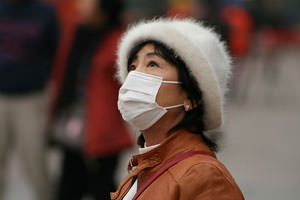
HONG KONG — China has to find a way to continue its rapid growth without choking to death. Literally.
When I landed in Beijing last week, the sky was a brownish miasma through which distant landmarks were only faintly visible. The moment I stepped outside the city’s vast international airport, I noticed an acrid hint of burning coal in the all-too-palpable air. The next day, when I went to see the Great Wall, China’s most famous cultural treasure was wreathed in a gauzy shroud of pollution.
In Shanghai, the story was much the same. The city seemed to hide itself in an obscuring haze. Skyscrapers revealed themselves suddenly; you got close enough and all at once a huge building appeared. It was as if the architecture had decided to play hide-and-seek.
Even Hong Kong’s skies were grayish rather than blue when I landed here Sunday. The last time I visited the city, about 15 years ago, the sky was crystalline. Locals say that smog from the churning factories of southern China often drifts over Hong Kong — nothing like the pall that encloses Beijing and Shanghai, but enough to notice.
Pollution is just one of the mega-problems this country must solve as it continues its unprecedented pace of development. One week and change in China does not an expert make. But my solid first impression is that for the foreseeable future, the authoritarian Chinese leadership is going to have to focus attention and resources inward. What they’re attempting is a high-wire act extraordinaire.
China now has the world’s second-largest economy, but it also has 1.4 billion people, an estimated 500 million living in dire poverty. Per-capita gross domestic product is just $4,300 a year, compared to about $47,000 in the United States. In glittering Shanghai, where celebrity chefs service a Gucci-clad clientele along the historic Bund, I walked through a maze of alleys where the tiny, run-down homes lack even indoor plumbing.
Keeping the gap between rich and poor from becoming a permanent chasm — and a source of social unrest — is another of the daunting challenges that China faces. The government has raised the minimum wage and moved toward establishing a more effective social safety net. But even if the current pace of economic growth can be sustained, turning China into a middle-class nation will take decades.
The rich are reportedly feeling vulnerable. Wags in the capital gossip about tycoons who have sent their families — and their money — abroad. Just in case.
China also has to manage an unceasing flood of migration from the countryside to the cities. According to the 2010 census, the Chongqing metropolitan area is home to nearly 29 million people; Shanghai, 23 million; Beijing, 20 million; Chengdu, 14 million; Guangzhou, 13 million. There must be housing for all these people, and sewer and electricity lines to service their sprawling neighborhoods, and police protection. Oh, and jobs.
There is also the issue of corruption. Dingli Shen, a professor at Shanghai’s elite Fudan University, said that the Chinese understand when officials are greedy, but not too greedy. Some government and Communist Party officials, he said, are “now on the brink of unreasonable greediness.”
But according to Shanghai pollster Victor Yuan, the government is doing fairly well. Yuan has been doing opinion research in China for nearly 20 years, and he said that according to recent polling, about 65 percent of Chinese citizens believe the government is responsive to their needs.
Yuan said the public’s top concerns are inflation, housing prices, health care, education and unemployment, in that order. His research indicates that the rich-poor gap is a bigger issue for the struggling middle class than it is for the genuinely impoverished. You may want to take all this with a grain of salt, however, because while Yuan conducts privately sponsored surveys, he has also done some work for the government.
But I find it fascinating that an authoritarian regime relies on polling at all. Yuan said local governments use his research to measure various agencies’ performance, using the results to determine which programs are working and which officials deserve promotion.
I spoke with entrepreneurs, executives and even intellectuals who genuinely believe that the Chinese system, though undemocratic, is delivering amazing results.
I think the most visible test will be how China deals with the noxious pollution that is a woeful fact of daily life. What legitimate government fails to secure for its citizens the right to breathe?
Watch the air.
Eugene Robinson’s e-mail address is eugenerobinson(at)washpost.com.
© 2011, Washington Post Writers Group
Your support matters…Independent journalism is under threat and overshadowed by heavily funded mainstream media.
You can help level the playing field. Become a member.
Your tax-deductible contribution keeps us digging beneath the headlines to give you thought-provoking, investigative reporting and analysis that unearths what's really happening- without compromise.
Give today to support our courageous, independent journalists.
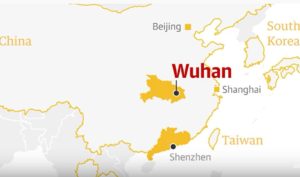
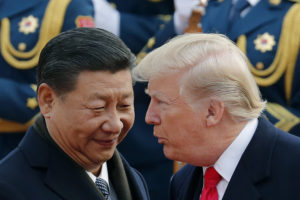
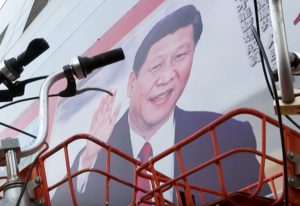

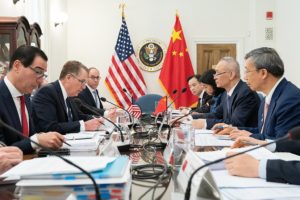
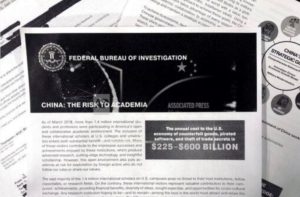
You need to be a supporter to comment.
There are currently no responses to this article.
Be the first to respond.